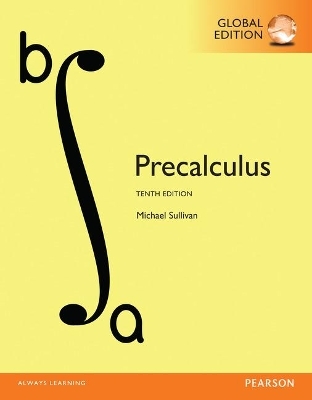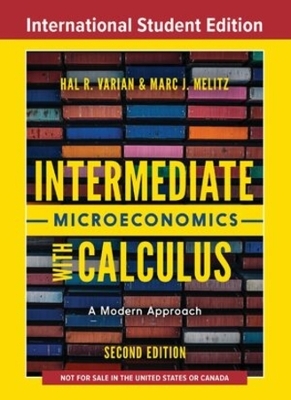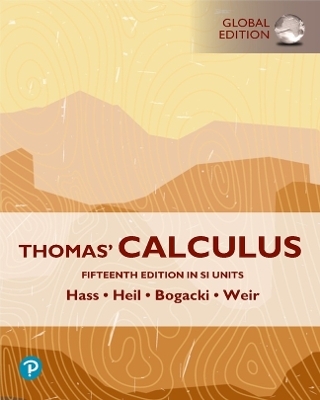
Precalculus + MyLab Mathematics with Pearson eText, Global Edition
Pearson Education Limited
978-1-292-12189-5 (ISBN)
Also, by implementing the New! Guided Lecture notes that focus students on the important concepts and help structure studying, students will have the most effective tools to succeed.
Michael Sullivan, Emeritus Professor of Mathematics at Chicago State University, received a Ph.D. in mathematics from the Illinois Institute of Technology. Mike taught at Chicago State for 35 years before recently retiring. He is a native of Chicago’s South Side and divides his time between a home in Oak Lawn IL and a condo in Naples FL.
1. Graphs
1.1 The Distance and Midpoint Formulas
1.2 Graphs of Equations in Two Variables; Intercepts; Symmetry
1.3 Lines
1.4 Circles
2. Functions and Their Graphs
2.1 Functions
2.2 The Graph of a Function
2.3 Properties of Functions
2.4 Library of Functions; Piecewise-defined Functions
2.5 Graphing Techniques: Transformations
2.6 Mathematical Models: Building Functions
3. Linear and Quadratic Functions
3.1 Properties of Linear Functions and Linear Models
3.2 Building Linear Models from Data
3.3 Quadratic Functions and Their Properties
3.4 Build Quadratic Models from Verbal Descriptions and from Data
3.5 Inequalities Involving Quadratic Functions
4. Polynomial and Rational Functions
4.1 Polynomial Functions and Models
4.2 Properties of Rational Functions
4.3 The Graph of a Rational Function
4.4 Polynomial and Rational Inequalities
4.5 The Real Zeros of a Polynomial Function
4.6 Complex Zeros; Fundamental Theorem of Algebra
5. Exponential and Logarithmic Functions
5.1 Composite Functions
5.2 One-to-One Functions; Inverse Functions
5.3 Exponential Functions
5.4 Logarithmic Functions
5.5 Properties of Logarithms
5.6 Logarithmic and Exponential Equations
5.7 Financial Models
5.8 Exponential Growth and Decay Models; Newton’s Law; Logistic Growth and Decay Models
5.9 Building Exponential, Logarithmic, and Logistic Models from Data
6. Trigonometric Functions
6.1 Angles and Their Measure
6.2 Trigonometric Functions: Unit Circle Approach
6.3 Properties of the Trigonometric Functions
6.4 Graphs of the Sine and Cosine Functions
6.5 Graphs of the Tangent, Cotangent, Cosecant, and Secant Functions
6.6 Phase Shift; Sinusoidal Curve Fitting
7. Analytic Trigonometry
7.1 The Inverse Sine, Cosine, and Tangent Functions
7.2 The Inverse Trigonometric Functions (Continued)
7.3 Trigonometric Equations
7.4 Trigonometric Identities
7.5 Sum and Difference Formulas
7.6 Double-angle and Half-angle Formulas
7.7 Product-to-Sum and Sum-to-Product Formulas
8. Applications of Trigonometric Functions
8.1 Right Triangle Trigonometry; Applications
8.2 The Law of Sines
8.3 The Law of Cosines
8.4 Area of a Triangle
8.5 Simple Harmonic Motion; Damped Motion; Combining Waves
9. Polar Coordinates; Vectors
9.1 Polar Coordinates
9.2 Polar Equations and Graphs
9.3 The Complex Plane; DeMoivre’s Theorem
9.4 Vectors
9.5 The Dot Product
9.6 Vectors in Space
9.7 The Cross Product
10. Analytic Geometry
10.1 Conics
10.2 The Parabola
10.3 The Ellipse
10.4 The Hyperbola
10.5 Rotation of Axes; General Form of a Conic
10.6 Polar Equations of Conics
10.7 Plane Curves and Parametric Equations
11. Systems of Equations and Inequalities
11.1 Systems of Linear Equations: Substitution and Elimination
11.2 Systems of Linear Equations: Matrices
11.3 Systems of Linear Equations: Determinants
11.4 Matrix Algebra
11.5 Partial Fraction Decomposition
11.6 Systems of Nonlinear Equations
11.7 Systems of Inequalities
11.8 Linear Programming
12. Sequences; Induction; the Binomial Theorem
12.1 Sequences
12.2 Arithmetic Sequences
12.3 Geometric Sequences; Geometric Series
12.4 Mathematical Induction
12.5 The Binomial Theorem
13. Counting and Probability
13.1 Counting
13.2 Permutations and Combinations
13.3 Probab
| Erscheint lt. Verlag | 26.12.2017 |
|---|---|
| Verlagsort | Harlow |
| Sprache | englisch |
| Maße | 220 x 282 mm |
| Gewicht | 2436 g |
| Themenwelt | Mathematik / Informatik ► Mathematik ► Analysis |
| ISBN-10 | 1-292-12189-0 / 1292121890 |
| ISBN-13 | 978-1-292-12189-5 / 9781292121895 |
| Zustand | Neuware |
| Informationen gemäß Produktsicherheitsverordnung (GPSR) | |
| Haben Sie eine Frage zum Produkt? |
aus dem Bereich


